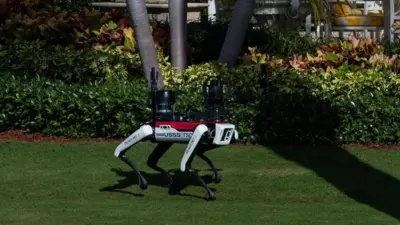We've updated our Privacy and Cookies Policy
We've made some important changes to our Privacy and Cookies Policy and we want you to know what this means for you and your data.
London Overground services disrupted amid safety fears
Services on the London Overground network have been disrupted after engineers were forced to take trains off the tracks amid "safety" fears.
Part of the braking system is understood to have fallen off from one of its trains "within the last week".
As a result the network's branches to Croydon, Crystal Palace, New Cross Gate and Highbury and Islington have all been forced to close.
TfL say the "extra safety checks" has resulted in a "shortage of trains".
The problems have caused severe delays on other parts of the network at Richmond, Clapham Junction and Willesden Junction.
A tweet sent out by the official London Overground Twitter account said TfL's inspection team "found tracks not safe enough for trains to travel on."
Image source, @dannamiller22
However, TfL's Jonathan Fox, director of rail and sponsored services, said this was not the case.
"Debris on the track was discovered near Shoreditch," he said.
"We have carried out urgent checks on all trains before allowing them to enter service and we are working flat out to resume a full service as quickly as we can."
Analysis: ҙуПуҙ«ГҪ London's transport correspondent Tom Edwards
It is unusual for a train fleet to be grounded for safety checks, but not unheard of.
I'm told a brake caliper was found on the track during routine inspections - that's the bit of the brake that squeezes the brake disc and slows the train down.
Finding it means engineers have to check the whole fleet to find out where it came from and if there are any problems with other brakes.
The good news is it was spotted - ultimately that is what these checks are for. Once the trains are given the all clear they'll be allowed back on the tracks.
However it is embarrassing for Tfl, as these trains are not that old so it'll be hoping this is a one off and not a fleet design failure.
Top Stories
More to explore
Most read
Content is not available








